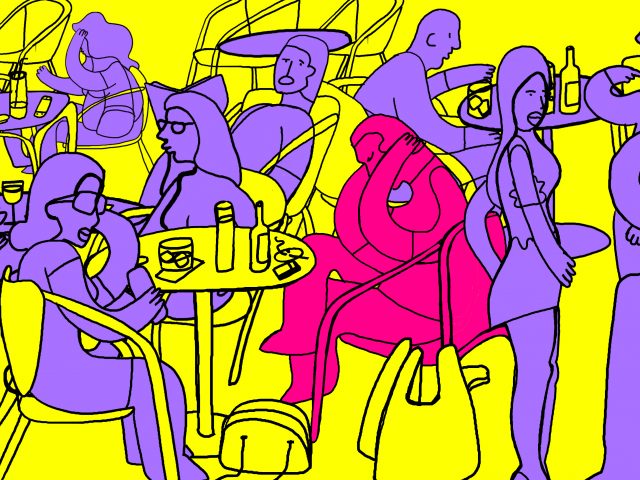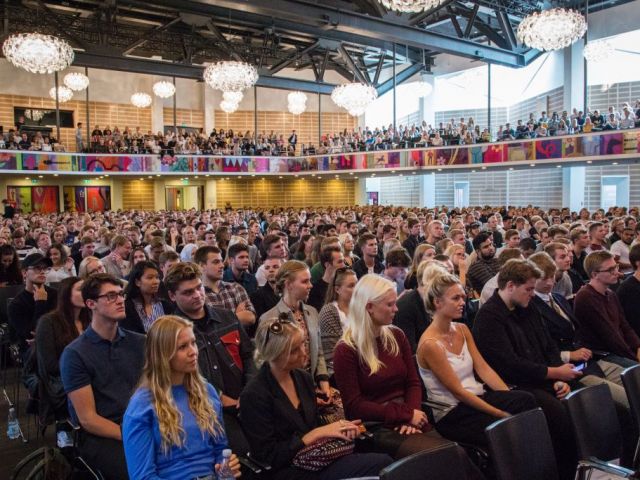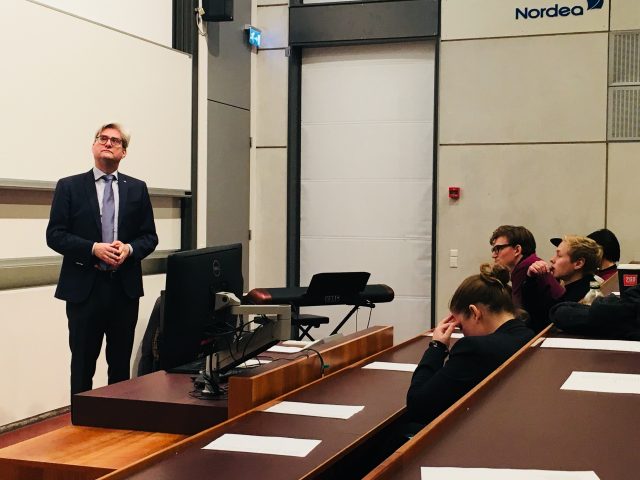Minister dismisses the 12+ grade and opens an office for student welfare

The new Minister for Higher Education and Science, Ane Halsboe-Jørgensen (S) has canceled the proposal made by the former government about a 12+ grade. Instead she wants to open a new office that focuses on student well-being. The President of CBS Students and the Head of the Dean's Office at CBS are positive about the idea, but note that it might only be part of the solution.
Earlier this year, the then Minister for Higher Education and Science, Tommy Ahlers (V) and the former government introduced a proposal about creating an add-on to the existing 7-point grading scale.
The new add-on was the 12+ grade, intended for students who show extraordinary performance. Although the new grade would have still counted as a 12, the final diploma would have been provided with an explanatory statement from the examiner about why the 12+ was given.
But now, the new Minister Ane Halsboe-Jørgensen (S) has ditched the proposal and is opening a student welfare office instead.
“It’s up for discussion”
The minister’s announcement about the new office has evoked a positive reaction from the President of CBS Students, Mikkel Nielsen.
“I’m very excited about the idea of establishing an office for the well-being of our students,” he says and argues the Ane Halsboe-Jørgensen’s new proposal comes at a relevant time.
“Welfare is a huge issue – not only in society, but also at the universities where more and more students experience pressure during their studies. Therefore, I’m happy to hear that this is something that the minister is taking seriously.”
Wilbert van der Meer, the Head of the Dean’s Office at CBS, is also positive about the new idea, but he also thinks that a ministerial office cannot stand alone.
“I think that it’s up for discussion as to whether an office in the Ministry is the solution to a problem such as this. But it’s important that student welfare is becoming part of the political agenda,” he says and argues that there have been former offices in the Ministry that have had a somewhat conflicting agenda.
“I can guarantee that there have been a lot of other offices that, for instance, worked on making students graduate and finish their studies faster.”
Students left to their own devices
Wilbert van der Meer also emphasizes the fact that problems related to student well-being also place demands on CBS as a university.
“We’re very pleased to have such talented students at CBS – but they’re also very good at putting great demands on themselves. Therefore, our job as a university is to tell them that the most important thing is to learn – not the exam,” he says and continues.
“When our students have been working on getting high grades all their lives, this statement can make them feel very insecure. Therefore it’s important that we get better at giving feedback in other ways than just giving grades at the end.”
“Right now, we’re trying to do that by postponing giving grades for a bit and focusing more on learning. And so far it looks as though this is going to produce good results. We have investigated the capabilities our students need in the future, and the most important message is that you have to be able to handle dilemmas – not repeating a fixed answer without mistakes.”
According to Wilbert van der Meer, the problem with student welfare is, to a large extent, caused by budget cutbacks.
“It’s a bit sad to say this, but budget cutbacks have resulted in a reduction on the amount of hours used per student and at the same time an increase in the number of students, which means that the students have more or less been left to their own devices,” he says and clarifies.
“As a university student you need to be independent, but when you hardly have any contact with your lecturers, you’re left to fend for yourself and to evaluate yourself.”
Minding the gap
The former government’s proposal was based on an evaluation that highlighted large gaps between grades 4, 7 and 10, the lack of opportunities to reward extraordinary performance, and the inflation of high grades – all being factors that contribute towards making the system insufficient.
The new Minister of Higher Education and Science Ane Halsboe-Jørgensen (S) agrees with this point of view, and last week she pointed out to Danish newspaper, Politiken that the existing grade system focuses too much on flaws as well the large gaps between the grades.
This is something that pleases Mikkel Nielsen, who doesn’t think that the cancellation of the 12+ will have any significant impact.
“It’s very positive that the Minister wants to focus on the large gaps between the grades, because these are some of the biggest problems with the existing grade scale. And according to the 12+ grade, it isn’t that big a deal since it would have been a symbolic grade to avoid issues when comparing grades internationally,” he says.
Wilbert van der Meer won’t miss the add-on to grade 12 that much either, but he still thinks it was a good idea.
“It was an interesting idea, which highlighted the fact that extraordinary performance can’t be judged solely on zero flaws. I don’t know if the 12+ grade was a solution to that, but we have to try harder and make more effort to show that achieving zero mistakes is not the ideal,” he says.








































































































































Comments